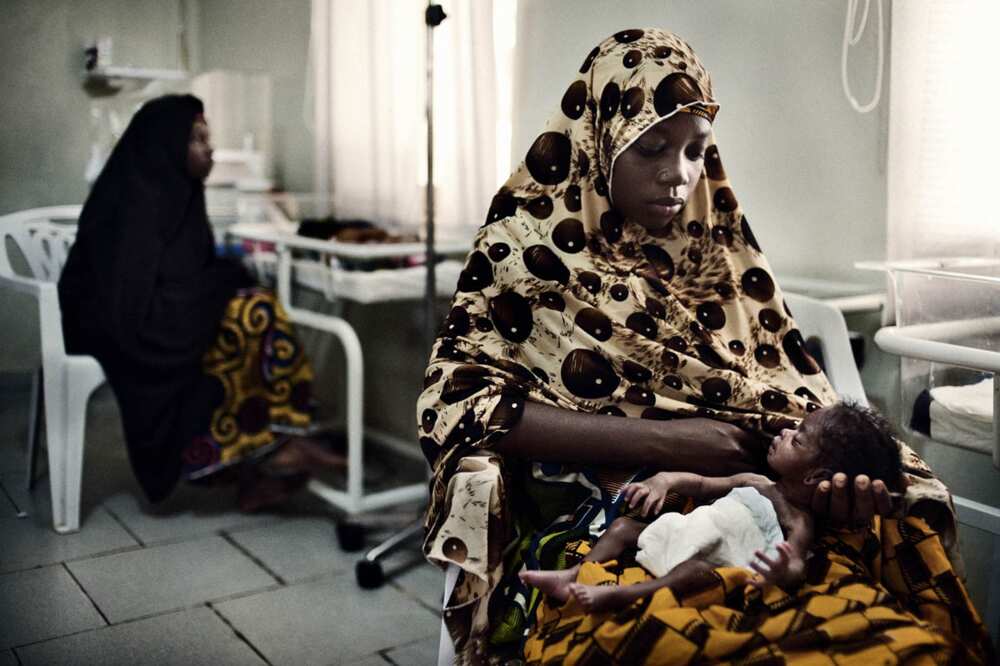Stakeholders Brainstorm As Nigeria Health Watch Hosts IntegrateE Project Media Roundtable
- In Nigeria, statistics show that about 771,000 unsafe abortions and 13,000 maternal deaths can be averted
- This situation is possible when women have access to and use modern contraceptives for family planning or child spacing
- A project currently addressing the issues is ongoing and the organisers need the buy-in of the media to properly drive the narrative
PAY ATTENTION: Click “See First” under the “Following” tab to see Legit.ng News on your Facebook News Feed!
FCT, Abuja - Nigeria Health Watch, in collaboration with Society for Family Health (SFH), lead implementers of the IntegrateE project, on Thursday, October 14 organised a media roundtable to bring together, top media stakeholders to discuss outcomes from the initiative.
The roundtable attended by a Legit.ng editor, triggered dialogue between project implementers and media practitioners with the aim of producing high-quality multimedia content on the activities, outcome, and impact of the IntegrateE project.

Source: Facebook
The IntegrateE project, implemented by a consortium led by the SFH and co-funded by Bill & Melinda Gates Foundation, to improve primary healthcare access to Nigerians, especially underserved populations, with a major focus on expanding family planning services in the country.
Delivering a welcome address at the event, Dr. Kayode Afolabi, director, and head, Reproductive Health Division, Federal Ministry of Health, said the ministry in recognition of the private sector investments in healthcare, recently developed a private sector engagement strategy for family planning in Nigeria.
Do you have a groundbreaking story you would like us to publish? Please reach us through info@corp.legit.ng!
He said the government is currently supporting private health sector focus project such as IntegrateE to improve access to quality family planning.
His words:
“The project is an innovative project with a lot of promises. The evidence from this project can inform government's decision to revise policies that will facilitate the expansion of family planning and other primary healthcare services through these cadres of health providers across the country.”
Also speaking, Vivianne Ihekweazu, the Managing Director of Nigeria Health Watch, noted that IntegrateE is not just a project but one of the avenues for pilot studies for family planning in the country.
Her words:
“We have seen the results in Kaduna and Lagos. If we can scale this, critically bringing the informal private sector and enable them to administer family planning services so they can support the public healthcare sector.
“It also highlights gaps we have in our health system and healthcare workers in our communities, also alerting Nigerians to our rising population. We have a very high birth rate which is not sustainable.”
Delivering a remark at the event, Pharm E.A Mohammed, the Registrar, Pharmacists Council of Nigeria (PCN), noted that:
“The status of the primary healthcare system as of today has created an overburden on the private health sector and made more prominent informal healthcare.
“The Community Pharmacies (CPs) and Patent and Proprietary Medicine Vendors (PPMVs) shops are usually the first points of accessing primary health care for most Nigerian populace. This situation is more pronounced in the rural and underserved areas.
“The private sector accounts for 58% of health services provision, including child-related health services, with drug shops and pharmacists comprising 40% of the private healthcare sector and 83% of all child health care services in Nigeria. Majority of young women (25 years) also obtain their family planning methods from CPs and PPMVs.”
On his part, the MD of SFH, Omokhudu Idogho, stated that:
“The project also successfully developed a demand creation, reporting, and referral systems aimed at strengthening family planning service delivery at the community level.
“Furthermore, we partnered with the federal ministry of health to facilitate the transition of the data to the national reporting platform. We continue to support the PCN to improve its regulatory capacity through the deployment of ICT.
“These modest achievements continue to drive the development and institutionalization of enabling policies for greater involvement of the private sector in healthcare provision.”
Emir Sanusi speaks on family planning, child spacing
Recall that the 14th Emir of Kano, Muhammad Sanusi ll, recently called for the implementation of strict family planning laws to regulate Nigeria’s population while reiterating that people ought to give birth to children that they can cater for.
Sanusi stated that emerging realities have shown that government cannot adequately provide the needed infrastructure for the surging population of children in the country.
He also faulted the extant arrangement in the country where people can give birth to several children, not minding their financial strength.
Source: Legit.ng




